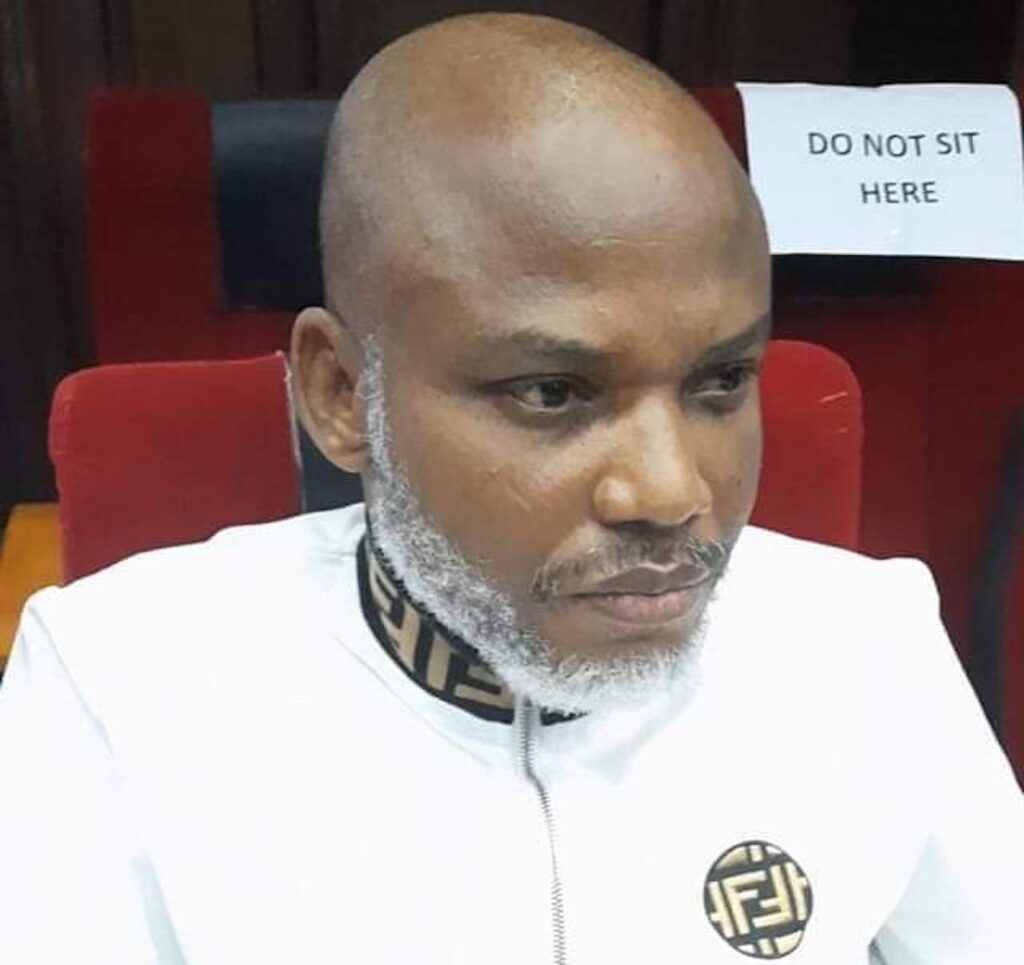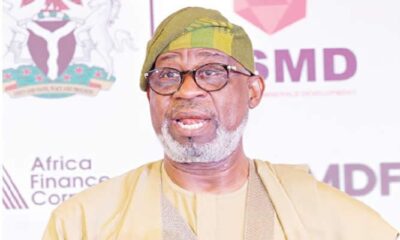The pro-Biafra group described Mazi Kanu’s rendition as flagrant breach of Section 15 of Nigeria’s Extradition Act.
The Indigenous People of Biafra (IPOB) has criticized the United Kingdom for allegedly being complicit in the unlawful rendition and continued detention of its leader, Mazi Nnamdi Kanu.
IPOB in a statement by its Spokesman / Media and Publicity Secretary, Emma Powerful titled, “United Kingdoms complicity in Nigeria’s illegal rendition and detention of British citizen Mazi Nnamdi Kanu: A judicial and moral indictment” decried the continued silence and what it called apparent complicity of United Kingdom government in the face of violation of Kanu’s right.
The pro-Biafra group which described Mazi Kanu’s rendition as flagrant breach of Section 15 of Nigeria’s Extradition Act, Article 12(4) of the African Charter on Human and Peoples’ Rights, and
Articles 9 and 14 of the ICCPR, to which both Nigeria and the UK are state parties.
IPOB’s statement read, “The Indigenous People of Biafra (IPOB) decries the continued silence and apparent complicity of the United Kingdom Government in the face of Nigeria’s gross and well-documented violations of international law, domestic law, and judicial precedent against Mazi Nnamdi Kanu, a British citizen and freedom advocate.”
“Mazi Nnamdi Kanu was abducted in Kenya in June 2021 in a state-sponsored criminal act of extraordinary rendition and forcibly returned to Nigeria without any extradition proceedings, a flagrant breach of Section 15 of Nigeria’s Extradition Act, Article 12(4) of the African Charter on Human and Peoples’ Rights, and Articles 9 and 14 of the ICCPR, to which both Nigeria and the UK are state parties.
“What makes the UK’s silence especially appalling is that this is not an abstract diplomatic disagreement, but a matter in which the UN Working Group on Arbitrary Detention (Opinion No. 25/2022) unequivocally declared Mazi Nnamdi Kanu’s detention illegal, and ordered his immediate release and compensation.
“The Kenyan High Court ruled that his abduction on Kenyan soil was unconstitutional, and awarded damages for Kenya’s complicity. The Nigerian Court of Appeal (October 2022) held that Mazi Nnamdi Kanu’s extraordinary rendition constituted a fundamental violation of Nigerian law, effectively nullifying the proceedings against him.
“The Federal High Court sitting in Umuahia (2022) awarded Mazi Kanu, ₦500 million in damages for the same violations. Three judicial forums in Nigeria, Kenya, and at the UN level have all concluded that Nnamdi Kanu’s fundamental rights were trampled upon.
“It is alarming that after all these the UK Government, under the pretence of consular ambiguity and “dual nationality,” has refused to act or even issue a formal condemnation. This is in stark contradiction to its own principled reaction in the Dikko Affair (1984), where it, condemned Nigeria’s attempted rendition of Umaru Dikko from the UK in the strongest diplomatic terms.
“Severed diplomatic ties, threatened legal action for violations of international law and British sovereignty. In Dikko v. The State [1987] 2 NWLR (Pt. 56) 539, the Supreme Court of Nigeria, per Karibi-Whyte, JSC, made a judicial pronouncement that remains timeless.
“The trial of an accused person who has been brought before the court in violation of international law and without compliance with extradition procedures is a nullity. Jurisdiction cannot be conferred upon the court by illegality.
“It is deeply ironic, if not disgraceful, that while Nigeria is abandoning its own Supreme Court precedent, the UK has chosen silence, thus betraying the very principles it once stood for.
“To add further salt to injury, the alleged offences for which Mazi Nnamdi Kanu is being persecuted, primarily, political broadcasts were not committed in Nigeria. The applicable Nigerian law, Section 76 of the Terrorism (Prevention and Prohibition) Act 2022, provides that Nigerian courts can only assume jurisdiction where the alleged act is also a crime in the place it was committed, the well-established principle of double criminality.
“There is no evidence nor allegation that the UK, where the broadcasts were allegedly made, has found them criminal under UK law. Therefore, by Nigerian law, no court in Nigeria has jurisdiction from the onset to put Mazi Nnamdi Kanu on trial.”
IPOB, therefore, demands, “In view of the above, we call on the United Kingdom Government to publicly condemn the extraordinary rendition and continuing detention of our leader Mazi Nnamdi Kanu.”
“We also urge the United Kingdom to invoke diplomatic and legal mechanisms to demand Kanu’s immediate and unconditional release, just as they should clarify its position to the British Parliament and public on how it justifies inaction where a British citizen is illegally abducted, tortured, and indefinitely detained in breach of international law.
“British silence in this case is not neutrality, it is complicity. The UK must choose between its stated commitment to human rights and the rule of law, and its political convenience in shielding a illegality of the state. It cannot do both. History will not forget where Britain stood in this defining moment”
FOLLOW US ON:
FACEBOOK
TWITTER
PINTEREST
TIKTOK
YOUTUBE
LINKEDIN
TUMBLR
INSTAGRAM































